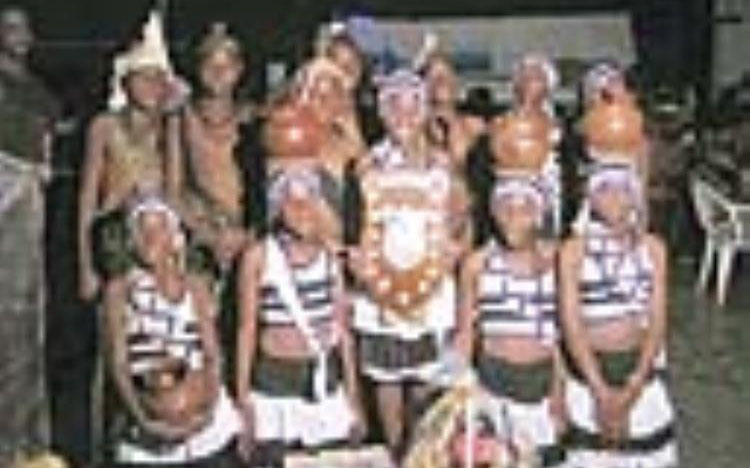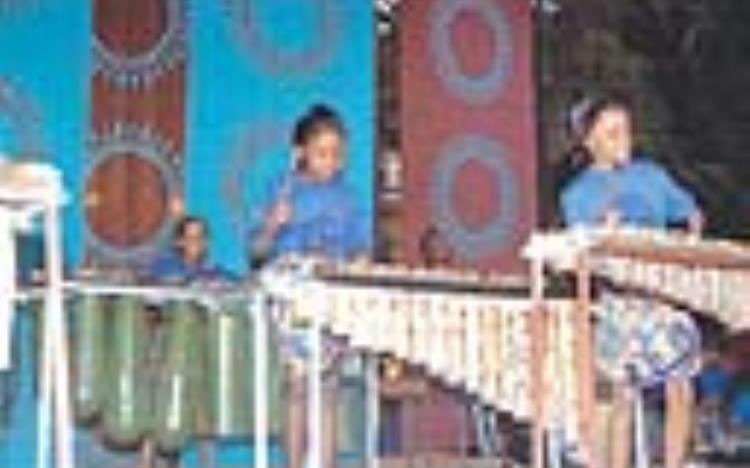Avoid holiday boredom with co-curriculum activities

Julia Mugadzaweta Features writer
The closing of schools for the holidays means that children have a lot of free time on their hands. There are no studies to worry about, no daily homework and no set routine for the day.
While this new freedom might be exciting for a few days, with nothing to do, children soon get bored.
Idle minds are the devil’s playground, to paraphrase an old saying, and many parents find themselves at wit’s end looking for something for their young ones during the school holidays.
This is where co-curriculum or extra-curriculum activities during the holidays come in handy.
Co-curriculum activities are programmes that learners undertake which complement what they learn in school. They are typically, but not always, defined by their separation from academic courses.
They are often ungraded; they do not require students to earn academic credit, they may take place outside of school or after regular school hours, and they may be operated by outside organisations.
Mrs Matonga, a senior teacher at a local private institution, said there are a wide range of co-curricular activities for students to choose from.
“Presently there is a long list of co-curricular activities for children to choose from. There are organisations like Chipawo who offer some activities. M and M dance factory also has programmes for students and even private individuals like Zorro take on students doing activities during the holidays,” she said.
Popular kick-boxing trainer and Zumba artist Zororo Nhira (Zorro) says that during the holidays he offers kick-boxing and dance lessons to school going children.
“I usually get clients who want to learn kick-boxing and others who take choreography lessons. People come with their children as well for a few sessions,” he said.
According to Mr Nhira, his holiday classes are filled with new faces.
“A number of those who come during holidays are beginners who are eager to learn the sport or dance but they usually do not continue when schools open,” he said.
The co-curricular activities that are available to children these days are endless, with some being offered by organisers from infancy right through to high school.
Parents who want their children to be well-rounded, balanced individuals will find co-curricular activities give children the opportunity to develop their skills, interests and talents in various areas.
According to a study done by Kimiko Fujita for the US Department of Education, “a correlation appears to exist between the activities that students choose outside of the classroom and their academic performance.
“Students who participate in co-curricular activities are three times more likely to have a grade point average of C or better than students who do not participate in co-curricular activities.”
These activities will help children to learn new things and improve their skills. Multiple activities can encourage development of different types of skills such as artistic and athletic abilities.
Moreover such activities help children to captivate the habit of routine exercise. Routine exercise helps in improving concentration and keeps the child’s mind and body healthy as well.
Dr Peter Kwaira, a senior lecturer with the University of Zimbabwe’s Department of Technical Education, stressed the importance of co-curricular activities saying that they cultivate students’ IQ and help in discipline.
“It is important that students take on these activities during the holidays so as to avoid idleness and boredom,” he said.
“They do not necessarily have to be routine and religious like school activities but they have to be complementing their school activities.
“Above all, students gain life skills, they get mentally focused and get fit in the process.
“Some sporting activities like karate also help mould a student because they cultivate discipline and character which overall is good for the student.”
He added co-curriculum activities actually complement curricular activities and groom the students in the “art of living and working together”.
It is important to keep children busy during vacations. Keeping children busy in hobby classes or co-curricular activities can help to avoid wastage of time during vacations.
University of Zimbabwe’s Faculty of Education Professor Charles Nherera said students should not be left idle.
“During the holidays, students have a lot of free time at their disposal and end up being idle and that is not healthy.
“We encourage students to rest but also to do other activities to broaden their knowledge gap.
“The school curriculum is not complete on its own; that is why we encourage students to engage in other activities.
“Students can participate in co-curriculum activities that they enjoy and where they are safe physically, emotionally and psychologically,” he said.
Professor Nherera stressed that co-curricular activities give better fitness to students and inculcate a sense of sportsmanship, competitive spirit, leadership, meticulousness, cooperation and team spirit.
Most schools shut their doors completely during the holidays and are not always open for use by the public.
An option when looking for a venue for co-curricular activities is to make use of City Council owned community centres.
Harare council spokesperson Mr Michael Chideme said the council had facilities that were available for use by students during the holidays.
“We have council maintained and serviced places that are fully functional and ready to be used. These community centres are for these purposes and the public should not hesitate to use them.
“There are city libraries and halls around residential areas that are open for use. In Mbare, Mai Musodzi hall for example is used by organisers for boxing lessons and in Kuwadzana I understand that there is another programme that is ongoing,” he said.
Additionally, parents can also become involved in assisting with co-curricular activities.
They can create car pools to provide transport to and from the various events; they can also fundraise, assist with the coaching or just be present at the activities.
This will help them to develop better relationships with their children and also with the organisers and other parents, which is helpful for shy children and may also help children to stay committed and interested in the long-term.
Having a parent coach or get involved in their child’s activities not only benefits the parent but it also helps the child excel at an enormous pace.
Olympian gold medallist Kirsty Coventry has on various occasions highlighted how her parents taught her to swim as a child and supported her throughout.
Mr Cosmas Machi, who coaches his daughters tennis during the holidays, said he took up the activity so he could bond with his children.
“I taught my daughters how to play tennis and we have been doing it since they were five. We go to Alexandra Sports Club every day at lunch time during the holidays and I have had the best moments with my girls playing tennis.
“One of them is actually serious about it though she is still in primary school but I already notice the talent,” he said.
Co-curricular activities are beneficial in that they develop self-confidence in young children and help them to learn to trust in some instances.
Children are more likely to enjoy extra-curricular activities based on their interests and personality type, rather than the ones they are persuaded to do by their parents.
Parents should support children as this is a great way to help them get to know themselves, find their own talent, build up their self-confidence and enjoy life.
- Feedback: [email protected]











Comments